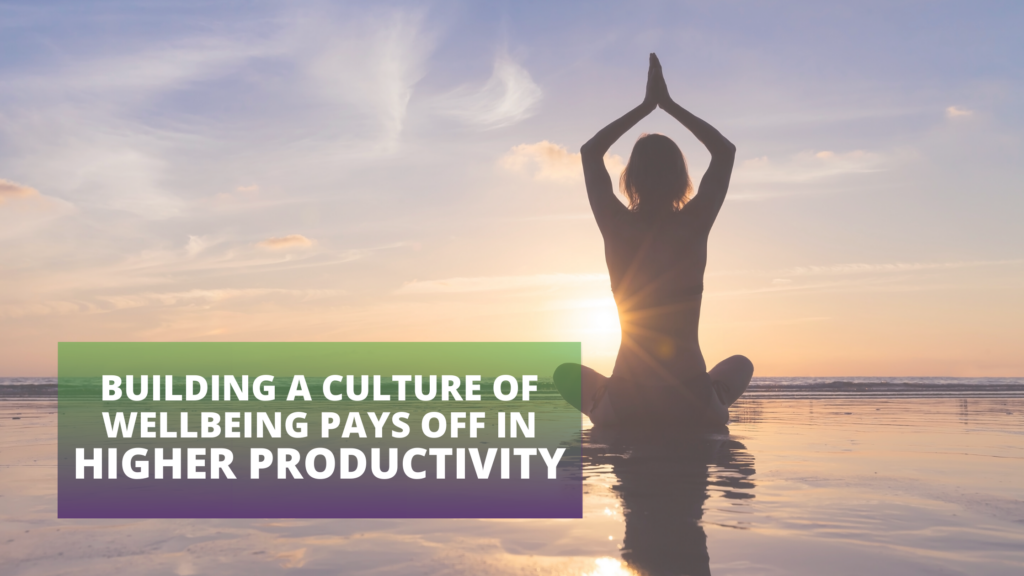I recently enrolled in a program at my alma mater, George Mason University. To learn some new tools to help my executive coaching clients field high-performing teams. I would assert that wellbeing is correlated directly to higher productivity and there are several key components. One is getting enough sleep. For years, it was almost like a badge of honor to grind out more hours at work and sacrifice rest in order to be more productive. But that thinking is antiquated. Professional athletes, especially basketball players and boxers, track and improve their performance based on sleep. So, it’s critical to have a work environment that promotes rest to keep teams alert.
Leaders often want to build aggressive workplaces through lots of energy and key performance indicators. But ultimately that push-forward mentality produces a serious imbalance that fails to recognize the strong connection between the mind, body and health. Thankfully, more business leaders recognize that productivity suffers under this approach and that their teams will actually burn out. Work breaks are another critical area. Fostering a workplace culture that allows employees, managers and executives to take a walk, go for a drive or meditate during work hours invariably will support creativity. The same goes for promoting exercise through different physical activities, yoga or competitive sports leagues.
Lastly, stitching together a social-support network that pairs like-minded individuals as part of a buddy system in the office will help reduce anxiety, build morale and achieve overall wellbeing. One such avenue involves employee resource groups. Creating a caring culture around wellbeing is also good for the bottom line and can impact the organization in ways that are truly transformative.
Related Article: Psychedelic Coaching Helps Boost Personal or Professional Performance
